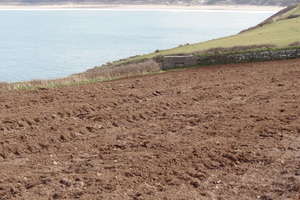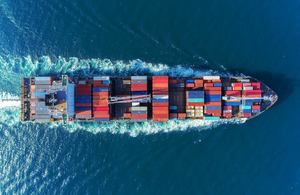Research and innovation infrastructure in the UK is to receive a £50 million upgrade, furthering the government’s aim to cement the UK’s status as a science superpower.
The projects include a boost to the world’s largest and most sensitive radio telescope network, carbon capture technologies, a state-of-the-art airborne research laboratory and a £17 million investment in digital research infrastructure.
The funding, which is supporting more than a dozen infrastructure projects and scoping studies, follows the Prime Minister’s announcement of a new ministerial council and Office for Science and Technology Strategy. Both will provide strategic direction on the use of science and technology as the tools to tackle great societal challenges, level up across the country and boost prosperity around the world.
Science Minister Amanda Solloway said:
If the last year and a half has taught us anything it’s that new challenges can arise from anywhere at any time.
By investing millions in the UK’s research infrastructure, we are putting science and innovation at the heart of our efforts to build back better while ensuring that we can respond to challenges now and in the future – from pandemic preparedness to tackling climate change.
Tackling problems such as climate change and antimicrobial resistance are immediate priorities reflected in the projects receiving funding, but this funding is equally designed to address the challenges and opportunities that may arise in the future.
By putting the infrastructure in place now, the UK will lead the world in developing innovative approaches to the challenges facing society, as well as enhancing the UK’s long-term research capability.
This investment will be delivered through grant funding and is the first to be delivered through UK Research and Innovation’s (UKRI) Infrastructure Roadmap programme to bolster the UK’s research and innovation capabilities.
UK Research and Innovation Chief Executive Professor Dame Ottoline Leyser said:
Infrastructure and the skilled people who design, build, maintain and operate it are vital to research and innovation. Projects such as the Square Kilometre Array Observatory and the UKRI Airborne Laboratory demonstrate the importance of investing in facilities that can help us answer some of the biggest questions and tackle the most pressing challenges.
This investment provides the foundation from which the UK will continue to play an important role in the advancement of scientific research and understanding around the world.
One of the largest increases in investment to be announced today is for the Square Kilometre Array Observatory (SKAO), which is an existing project which will receive £14.75 million of the £50 million announced for this financial year. SKAO, which will have telescopes in South Africa and Australia and has its HQ in Manchester, will have the world’s largest and most sensitive radio telescope network on Earth when constructed.
The SKAO telescopes will be able to image huge areas of sky with unparalleled sensitivity and on an unprecedented scale. Its image resolution quality will exceed the Hubble Space Telescope and it will lead the way for the UK in scientific discovery, helping to maintain our world-leading position.
Today’s funding also provides £5.5 million to upgrade the UKRI Airborne Laboratory for this financial year, enhancing its world-leading research capability and enabling it to remain at the cutting-edge of atmospheric research.
This world-class aircraft is unique in the UK, is capable of being deployed anywhere in the world, and provides invaluable data that allows for climate modelling and weather prediction. The upgrades will provide new air pollution and aerosol equipment and will assess the impact of pollution on both the atmosphere and human health, ensuring continued capability to respond to airborne environment incidents that could impact society and the economy.
Further funding will be awarded to projects covering a broad spectrum of innovative work, including:
- £17 million to initiate a national Digital Research Infrastructure to enable UK researchers to harness the full power of modern digital platforms, tools and techniques, including Net Zero computing
- a scoping study into developing a CO2 Storage Testbed that will de-risk carbon capture and storage on an industrial scale, positioning the UK as a global leader in clean growth
- funding to plan for infrastructure offering cutting-edge technologies to drive innovation in the UK’s screen and performance industries
- investment to unlock the power of our rich population data to address key health issues and identify early markers for serious diseases
- £260,000 for a project to investigate the requirements for a new national Floods and Droughts Resilience Infrastructure, which would provide a world-leading observation network. With weather events increasing due to climate change, the aim is to reduce the impacts of floods and droughts in the UK by better understanding the water cycle
The government is committed to cementing the UK’s status as a science superpower, putting the country on track to reach 2.4% of GDP being spent on R&D across the UK economy by 2027.

